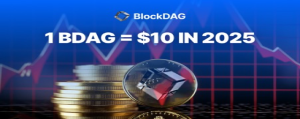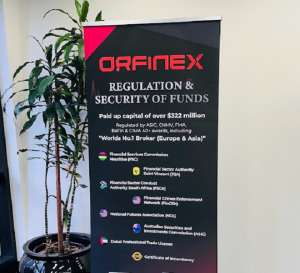Australia’s disdain for FX & CFD companies: No new AFS licenses, and regulatory bete noire is retail margin trading firms
Australia has marked itself out in recent years as a very attractive part of the world in which to establish a retail FX firm, or to open a branch of an established company from overseas. Largely, the attractions appealed to the sensibilities of many astute executives in the electronic trading business, as they equated to […]

Australia has marked itself out in recent years as a very attractive part of the world in which to establish a retail FX firm, or to open a branch of an established company from overseas.
Largely, the attractions appealed to the sensibilities of many astute executives in the electronic trading business, as they equated to a recipe for very sustainable business and a framework for growth. A very stable financial markets economy, excellent business ethic, proximity to the prized Asia Pacific region – with lots of trade agreements with important nations such as Singapore, Hong Kong and China, English speaking population, and a very comprehensive and secure regulatory environment under the auspices of the technologically advanced and ultra-modern Australian Securities and Investments Commission (ASIC).
Perhaps an ironic situation, bearing these factors in mind, is that one of the very reasons for operating in Australia as an electronic trading entity, could well become the sole reason for the contraction of the industry in the future in what is widely regarded as one of the top jurisdictions for FX and CFD companies.
ASIC has spent the last two years publicly demonstrating that it has serious concerns over the proliferation of retail FX and CFD companies which operate in Australia, and has included its concerns, along with several case studies and examples of very strict regulatory enforcement including the winding up of certain firms, in its enforcement reports.
GTL Trade Up demise caused ASIC to take ultra-conservative actions
Quite clearly, the outlining of the retail margin FX and CFD sector in Australia as a priority for regulatory consideration is far more than a simple statement of concern.
As far back as September 2014, it was pointed out to Andrew Saks-McLeod by several industry professionals that ASIC had begun to slow down the process of issuing new AFS (Australian Financial Services) licenses to FX and CFD firms, but was issuing AFS licenses to businesses that operate in other financial industry segments such as mortgage providers, credit firms and warranty companies. There was also absolutely no evidence of the restriction on license applications toward Australia’s prized institutional firms which operate via exchanges.
Australia has a long-standing history of institutional and raw commodity trading which dates back to the colonial period, and is a very prominent region for mining and exploration, and the trading of mineral commodities on its national stock exchange, an industry which contributes vastly to the wealth of the nation, and is monitored and regulated very effectively, hence ASIC does not want to jeopardize the economic reputation of the firm by allowing smaller firms which could fail to operate.
Whilst ASIC has closed down many firms over the last two years, and removed the ASIC licenses of those found to have been in breach of their requirements – often by means of electronic surveillance using ASIC’s Delta Stream surveillance system which was provided by First Derivatives and conducts real-time checks on all firms in Australia, the pinnacle of this particular trepidation with which ASIC approaches margin FX and CFD firms was spearheaded by the high profile demise of GTL Trade Up Pty in 2013.
Today, in ASIC’s six monthly enforcement report, that particular case was detailed as a reason why the regulator is taking a hard stance on FX.
ASIC is concerned about the culture within the financial services industry because it is a key driver of conduct. The trust and confidence of investors and financial consumers have been significantly eroded over the past few years due to poor conduct within the financial industry, including the provision of poor advice, both in large institutions and in smaller firms, and the mis-selling of financial products and services to investors and suspected financial benchmark and FX manipulation, both in Australia and overseas.
Whilst only some concerns relate to the institutional sector as mentioned above, ASIC states that there has been an increase in the number of businesses seeking an AFS licence to set up and operate a retail margin FX broker business in Australia, many with the ultimate objective of operating in the Asian marketplace. Whilst ASIC states that there has been an increase in applications, FinanceFeeds research categorically shows that none of the applications have been approved and no new licenses have been issued recently.
ASIC’s view is that FX trading often involves leverage and is a potentially risky form of retail investment. ASIC is undertaking proactive surveillance activities to ensure that existing FX brokers are meeting their AFS licence requirements, and is continuing to educate retail investors about the risks involved in FX trading. Indeed, the existing established firms including Pepperstone, Invast Securities and AxiTrader have a long standing provenance in the country and are likely to sustain and grow very long term businesses. Whilst not mentioned in the report, these companies are well known to be recognized and high quality domestic firms with very good track records.
“We are focusing on FX brokers that are not adequately disclosing the risks of trades to their clients, as well as ensuring that they are capable of managing their own risks and any conflicts of interest.”
The report details that the company’s owner, Andrew Jeffers, was banned from providing financial advice for three years after GTL Trade Up Pty Ltd issued three Product Disclosure Statements that contained false or materially misleading statements.
The statements of concern misled retail investors about the true trading position undertaken by GTL Trade Up and affected investors’ ability to make an informed decision about whether to invest with GTL Trade Up. 65 Liquidators were appointed to GTL on 26 September 2013 after its main liquidity provider, a Dubai-based entity, failed to make funds available to GTL to meet client withdrawals. At the time of its demise, Trade Up owed about $4.4 million to its retail clients.
Last year, FinanceFeeds spoke extensively to Ashley Jessen, an industry expert in Australia, who explained that CFD trading could be outlawed completely in Australia in the near future.
Mr. Jessen told FinanceFeeds at the time “A recent article published in the Financial Review by Patrick Durkin, highlighted that ASIC may be granted new powers by the government to put products like Contract for Difference (CFDs) under review. The question on the mind of brokers and traders alike is ‘Could ASIC ban CFD trading here in Australia?‘
CFDs could be banned in Australia
Mr. Jessen continued to explain “Mr Durkin noted ‘Margin loans, contracts for difference and bank warrants could be curtailed or banned under far-reaching new powers to be granted to the corporate regulator by the government in response to the Financial System Inquiry.” Given the leveraged nature of CFD trading, retail traders with little experience of money management, stop loss strategies and trading on leverage, have always been a potential black spot.
Access to huge amounts of financial leverage
Mr. Jessen considered the leverage and potential lack of ability by smaller firms to cover positions should a trade go the other way to be a matter for concern within the regulator. “Depending on your CFD broker, you may get access to 100 times leverage on your trading account. This means a $1,000 trading account could access a total position size up to $100,000 in value. As you can see, someone who lacks the experience or discipline is going to run into trouble pretty quickly.”
“Having spoken to ASIC Chairman Greg Medcraft in CFD Forum meetings and at industry events, it is clear Greg is not an advocate of retail traders getting access to highly leveraged, derivative products. Greg has often made it clear the CFD industry needs to self-regulate, and take matters under their own control” concluded Mr. Jessen.
No more use of client funds for hedging – smaller FX firms will feel the squeeze
In January this year, ASIC issued a report which came about as a result of the practice of using client money to hedge against risk. ASIC considers this practice to be similar to a bookmaker laying off bets with other bookmakers to reduce exposure to a large payout. A common practice among smaller brokerages, Australia wishes to put an end to this and force such firms to hold client money in trust.
Under the government’s proposed amendment to the Corporations Act, up to 20 small FX brokerages and electronic trading companies in Australia could be forced out of the market or reduce the range of products that they offer because they will not have the financial resources to hold money in trust without hedging.
A good quality environment and a good culture ensures the maintenance of good business practice. Certainly, Australia is protecting not only its corner, but ensuring that investors and traders are looked after by reputable retail firms.









